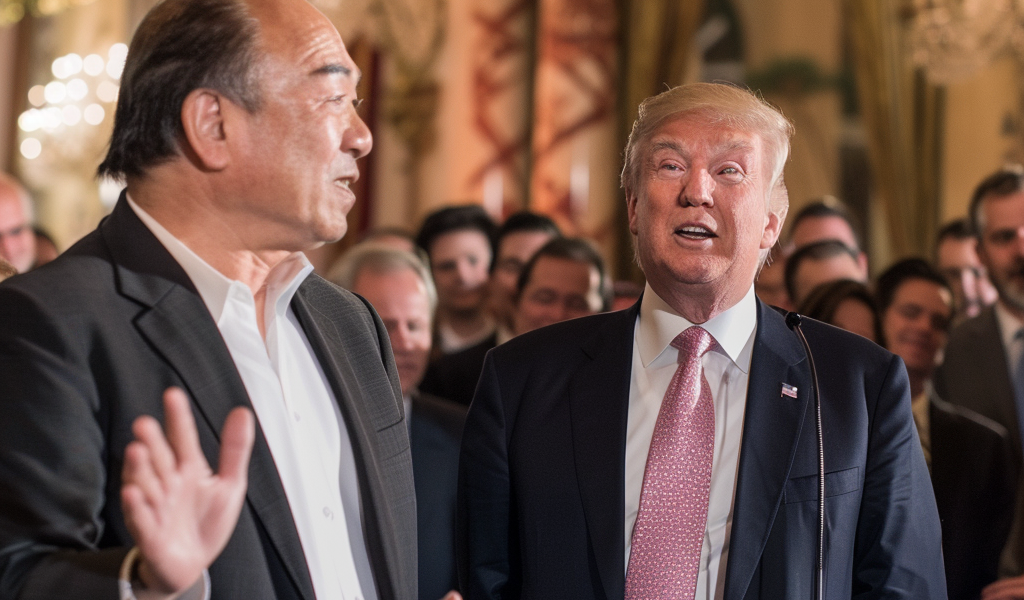In a significant display of optimism for the U.S. economy, Japanese billionaire and tech mogul Masayoshi Son has made headlines by pledging a monumental investment of $100 billion over the next four years. This announcement came during a press conference alongside President-elect Donald Trump, who has been vocal about his vision for revitalizing American business. Son’s commitment is expected to create approximately 100,000 jobs, marking a bold step in the ongoing dialogue surrounding foreign investment in the United States.
Son, who is the CEO of SoftBank Group, is known for his ambitious ventures and a mixed track record that includes both notable successes and high-profile failures. During the event held at Mar-a-Lago, he was lightheartedly coaxed by Trump to consider doubling his investment, highlighting the informal and somewhat theatrical nature of the announcement. This interaction underscores the collaborative yet competitive atmosphere that often characterizes business dealings in the Trump era.
Despite the grand promises, many industry observers are left with lingering questions regarding the feasibility and specifics of Son’s investment strategy. While he has previously hinted at opportunities within the artificial intelligence sector and a potential $100 billion chip venture, details regarding the funding and execution of this latest commitment were notably sparse. Earlier this year, SoftBank reported having around $30 billion in cash reserves, raising eyebrows about how the company plans to mobilize the additional funds necessary to fulfill this pledge.
The press conference also served as a platform for Trump to showcase his administration’s pro-business stance, which he argues will foster a more favorable environment for foreign investments. He has proposed significant tax cuts and regulatory rollbacks aimed at encouraging companies to manufacture goods domestically. This is in line with his broader economic strategy, which has already begun to resonate with Wall Street and major corporations eager to capitalize on potential growth opportunities.
Trump’s administration has made it clear that it intends to leverage its influence to attract foreign capital. His proposals include tax incentives for companies producing goods in the U.S. and expedited approvals for large investments exceeding $1 billion. This approach aims to stimulate economic growth and create jobs, a message that resonates with many business leaders and investors.
However, the landscape is not without its challenges. Concerns have been raised regarding Trump’s immigration policies, which may impact the availability of labor, and his plans to impose tariffs on imports from key trading partners like China, Mexico, and Canada. These factors could complicate the investment climate that Trump seeks to promote. Additionally, there is apprehension about possible rollbacks of manufacturing and energy incentives established under the previous administration, which some investors view favorably.
The event at Mar-a-Lago echoed the theatricality of Trump’s first term, which was marked by high-profile announcements and grand promises of job creation and investment. Political leaders from both parties frequently tout business investments as indicators of economic health, often claiming credit for successful ventures. For instance, President Joe Biden has been known to visit projects backed by major corporations, such as chipmaker TSMC, to emphasize the government’s role in facilitating investments in green energy and technology.
As the U.S. prepares for a new phase of economic policy under Trump, the implications of Son’s investment remain to be seen. The tech billionaire’s pledge could serve as a catalyst for further foreign investment, but the execution of such ambitious plans will require careful navigation of the complex economic and political landscape. Investors and analysts alike will be watching closely to determine how this investment unfolds and what it means for the future of American business.





